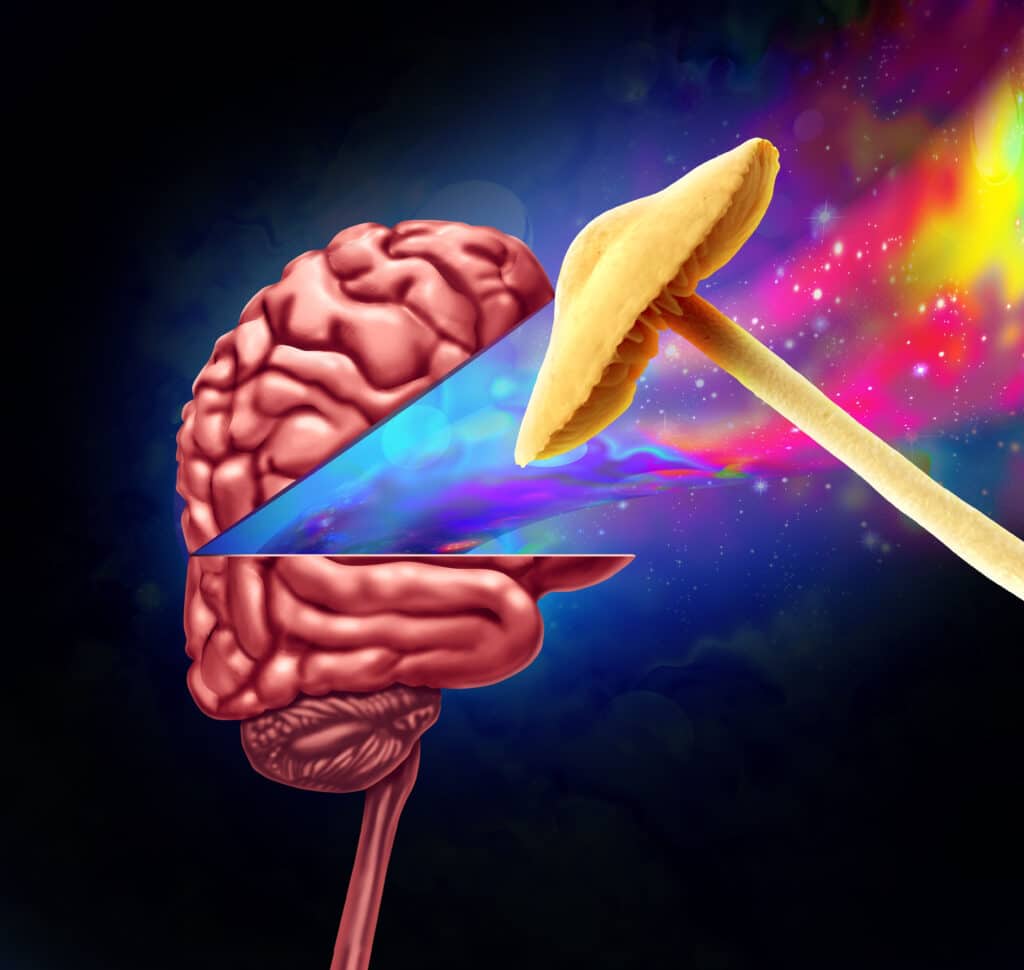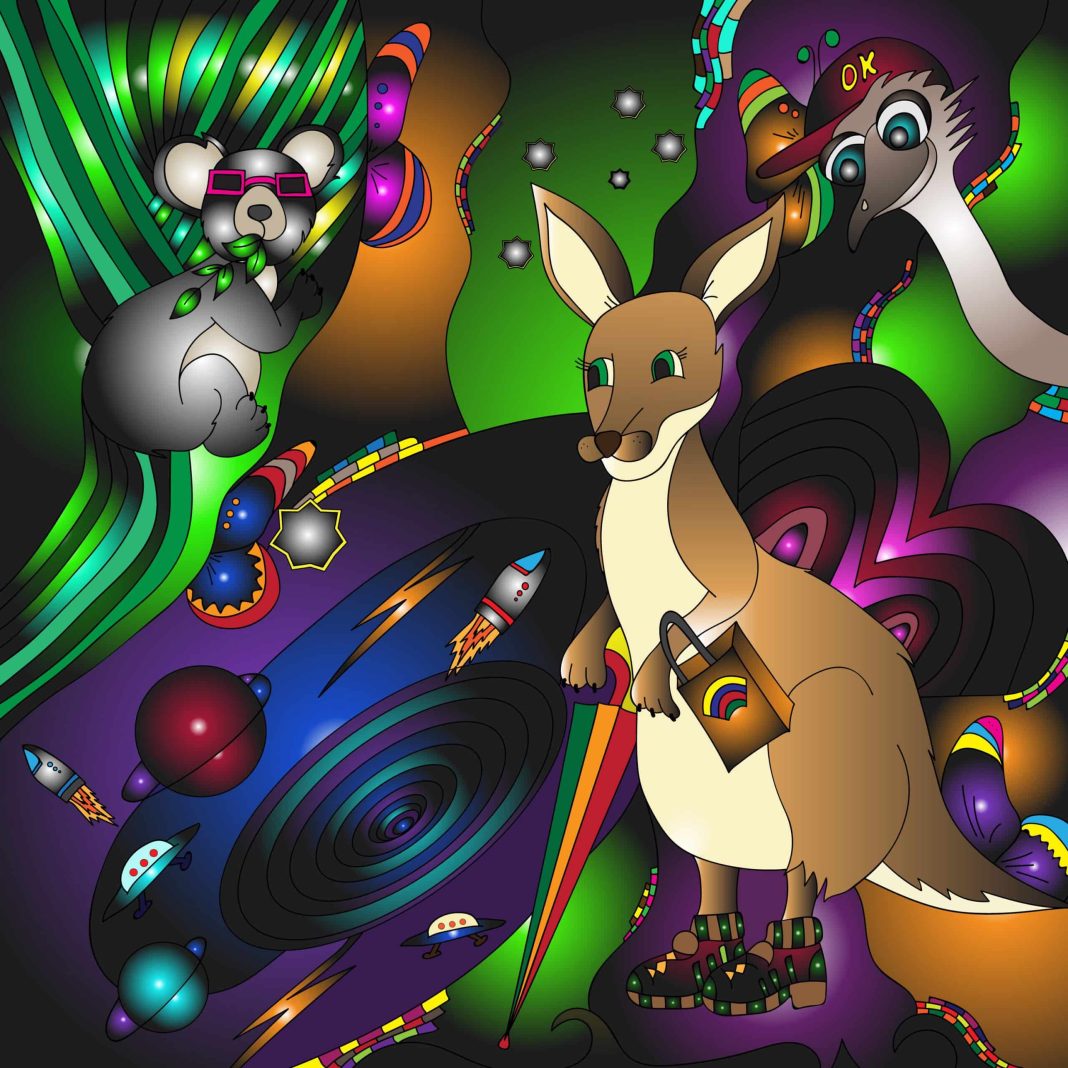The country might not have legal weed yet, but nonetheless, Australia just took a jump into medical psychedelics. Recently, the country became the first to officially institute a policy which helps those with certain mental health issues, to access psychedelic medications. Who does it apply to, and what does it entail? Read on for more info.
Australia legalized medical psychedelics
Technically, we knew it was coming. On February 3rd, the Australian government released a notice of intention to reclassify both psilocybin and MDMA. The new classifications now enable the prescription of these compounds to treat some mental health issues, so long as they’re prescribed by an authorized psychiatrist. This new allowance in Australia for medical psychedelics went into effect July 1st.
The law is regulated by the TGA (Therapeutic Goods Administration); which specifically permits the use of MDMA for post traumatic stress disorder treatment, and psilocybin for those with treatment resistant depression. As of right now, there are no other approved uses or conditions for these compounds. When used for authorized purposes, the compounds are regulated as Schedule 8 drugs; which means their use is controlled. Apart from these uses, they are considered Schedule 9; which means they’re prohibited.
Not just any psychiatrist can write a prescription for these drugs. Prescribing is saved for professionals with specialized qualifications in treating severe mental health conditions; particularly with therapies not well established in main stream medicine. Each prescribing psychiatrist must get TGA approval as a part of the Authorised Prescriber Scheme, as well as an approval from a research ethics committee.
The decision to do this reclassification came about based on applications to TGA to reclassify the compounds, consultations with the public, an expert panel report, and the input of the Advisory Committee on Medicines Scheduling. All use of the compounds medically, must be done in a controlled setting; with some of the controls set up to protect patients while they are in an altered/incapacitated state.
As of right now, there are no officially approved medications that contain these compounds. Psychiatrists will write prescriptions for what are currently unapproved medications, that are legal via this service. How quickly medications will get approved in the future, is currently hard to say. But with this legalization, Australia becomes the first country to embrace medical psychedelics in this kind of an official capacity.
What is the realistic cost to the consumer for this treatment? Does this sort of therapy get covered by insurance? Not all information is available. One BBC article speculates that one round of medication could cost tens of thousands of dollars. In terms of how many treatments a patient receives, this too is speculation at the moment. According to mental health researcher Dr. Mike Musker of the University of South Australia, each course of treatment would be about three sessions within 5-8 weeks; and each session about eight hours long.
How does medical psychedelics legalization go over in Australia?
A lot of times, a new policy is adopted because it was introduced, and then voted on with some kind of parliamentary system. In the case of Australia, and its recent reclassification to allow medical psychedelics, this was not the case. The TGA took input from several places, but the announcement itself came out of the blue. Perhaps the country went around the standard method so as not to have a bill torn apart by legislators with their own interests, and possibly rejected. Regardless of why it happened the way it did, there are different opinions on this new policy.
Some see it as a positive, like Celia Morgan, a professor of psychopharmacology at the UK’s University of Exeter. She said, via CNN “Patients are desperate for something new. (These drugs) represent a new way of treating things or a kind of paradigm shift in psychiatry really.”
Others seemed more shocked, like Dr. Colleen Loo, a professor of psychiatry at both the University of New South Wales and Sydney’s Black Dog Institute. She had this to say: “It is early compared to the usual process of developing and rolling out new treatments. The main issue is that the public understand this, and don’t think that the TGA making these drugs available means that the level of evidence of efficacy and safety is comparable to that usually required for new treatments, before they are approved for clinical use.”
She continued, “Done responsibly, e.g. observing the guidance of the RANZCP, it could mean that some people access a useful treatment. Done without due caution, oversight and monitoring, including by the regulatory authorities, it could mean more harm than good.”

Senior psychopharmacology lecturer, James Rucker of King’s College London’s Institute of Psychiatry, Psychology & Neuroscience said that Australia was, “jumping the gun.” He went on, “Why are you making an exception for these drugs, particularly when we know they have powerful psychoactive effects? You’re not making the exception for any other drugs. There certainly have been cases where it’s transformed people’s lives. But it’s unpredictable.”
Dr. Paul Liknaitzky, Clinical Psychedelic Lab head at Monash University had a similar view, saying “There are concerns that evidence remains inadequate and moving to clinical service is premature; that incompetent or poorly equipped clinicians could flood the space; that treatment will be unaffordable for most; that formal oversight of training, treatment, and patient outcomes will be minimal or ill-informed.”
I agree its good to be careful of what gets approved for a market; and I think some forget how common it is for medications to get released and then recalled. Often with no public conversation. This means something makes it though clinical safety trials, gets released, and then gets recalled due to safety issues. For Australia, this is evidenced here in the list of latest product recalls. I think this is awful all around, and I expect that some of the detractors here, are probably silent when this happens with a standard pharma product.
Where else are psychedelics legal?
Australia made headlines because it’s the first country to pass a medical psychedelics allowance. But its not the first location to make a legalization related to psychedelics. In the US, two states already legalized some amount of use: Oregon and Colorado, in 2020 and 2022 respectively.
Oregon legalized just mushrooms, and just the species Psilocybe cubensis. It has stricter requirements for how the drug is taken, and allows individual locations to opt out. Colorado, on the other hand, legalized several entheogenic plants as a natural medicine legalization, which is not an actual medical legalization. It allows more compounds, enforces the entire state to participate, and is looser with how the drugs can be taken.
Plenty of other states are also trying to get through legislation, like Rhode Island. Some for a recreational legalization, some for medical, and some just for study purposes. Canada, similarly has been exploring different medical benefits of psychedelics, including the use of ayahuasca, for which it loosened regulation for religious purposes. Many other countries are investigating the medical benefits, like Thailand; and in a few places like Jamaica, an industry thrives for mushrooms, because they were never made illegal.

The psychedelics industry is moving fast when compared to the amount of time its taken to get weed legalization policies passed. In the US, about half the county lives within the 23 states that are legal (24 if you count Tennessee’s legalization of hemp-derived cannabinoids.)
Australia is similar to the US in that different parts have different policies. In 2019, the Australian Capital Territory, home to capital city Canberra, passed a recreational cannabis measure. No other regions did the same as of yet, and all bills to update federal policy, thus far failed. Australia did pass a medical legalization in 2016, and has a growing medical industry. This industry, however, faces the same issue faced elsewhere; that the legal markets pale in comparison to the illicit market.
Conclusion
Australia goes to show that medical psychedelics are definitely gaining headway fast. It also goes to show how governments might opt to legalize things in ways that don’t involve a parliamentary system; in order to get things done faster, and without a back-and-forth argument. If this is the case, while its beneficial for anyone backing the current move, it also deserves some attention for being a sheisty way to pass laws.
Welcome readers; we appreciate that you made your way to Cannadelics.com. We’re an independent news publication with our noses stuck in the growing cannabis and hallucinogen landscapes. We’re here to update you, so don’t be a stranger. And sign up to the Cannadelics Weekly Newsletter, so you can access the best in product promotions, along with news updates.





